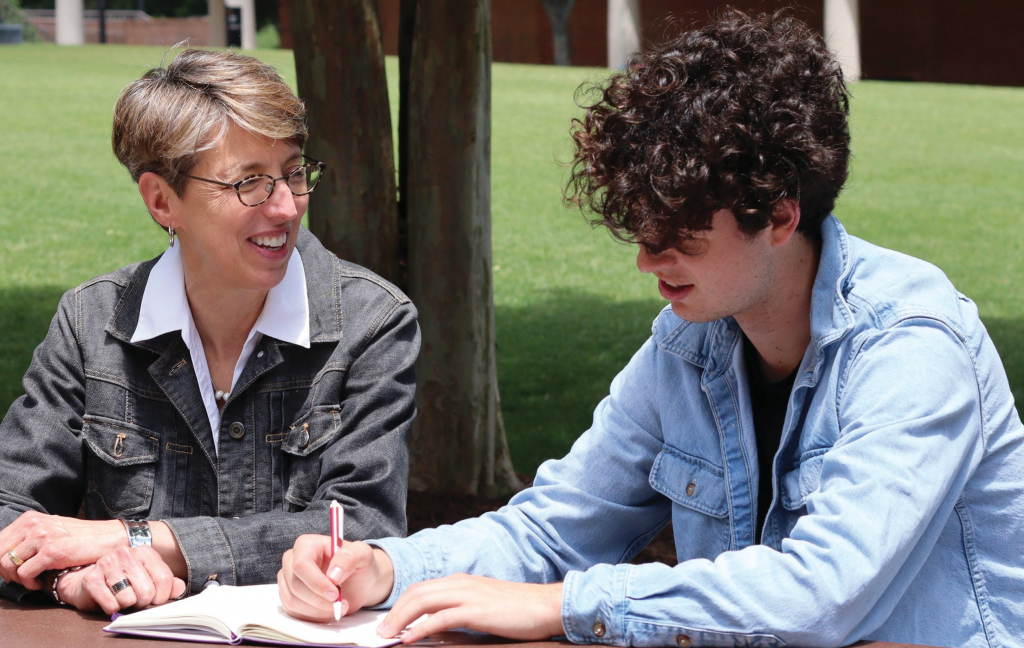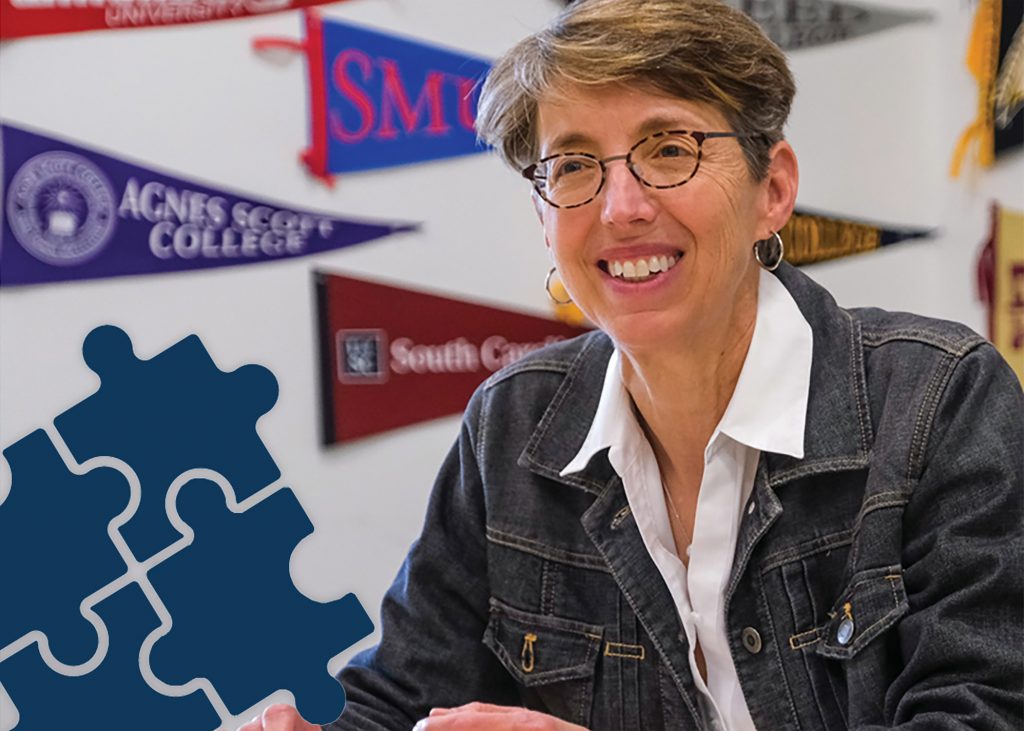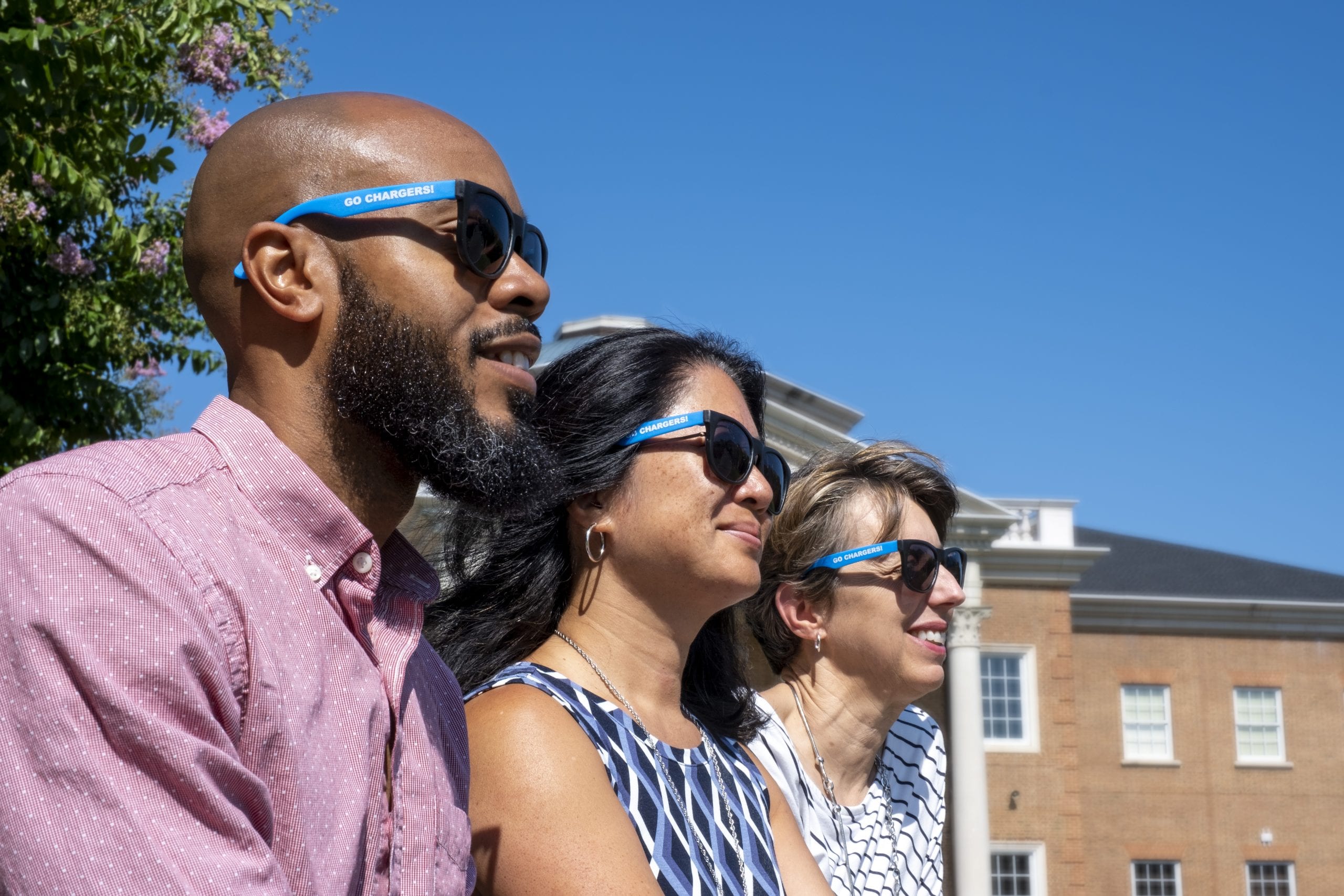Ask nearly any alum to recount one of the most valuable relationships they had as a Charger, and you’re likely to hear “my college counselor.” That resounding compliment is, in no small part, thanks to the efforts of Laura Sellers, CA’s long- time Co-Director of College Counseling. (Sellers is quick to shrug off the praise, pointing instead to her predecessors and current colleagues—Leya Jones, Brandon Carter, David Sayaki, and Becca Haque— who undoubtedly also share in the credit).
But humility aside, Sellers has been instrumental in shaping CA’s college counseling approach for over two decades. “College counseling is not framed as a separate discrete process at CA,” explains Sellers.
“We approach it as just another part of a student’s educational journey—of their lifelong learning journey, really. CA offers students so many avenues for discovery, and so many phenomenal leadership possibilities—even from Middle School—that by the time they get to us, they are prepared and empowered to do some important reflective work and really own their college process, just as they own their learning elsewhere on campus.”
In Sellers, “college counselor” is shorthand for a role that is equal parts thoughtful therapist, inspiring coach, tireless cheerleader, trusted guide, and sage mentor. In those myriad capacities, she has shepherded hundreds of students through countless moments of self-discovery on a journey resulting in their right-fit institutions.
What does that look like? It might mean helping students tune out the noise of peer voices, societal pressures, and preconceived ideas in favor of an introspective focus on personal values that homes in on the college experience they hope to have. Or it might require gently pushing students a bit outside of their preconceived expectations—or even comfort zones—to consider a university they may not have heard of. (Sellers takes the ever- growing list of colleges and universities across the globe that have received CA graduates as a particular point of pride.)
At the heart of her philosophy is a strong belief—shared by her fellow CA college counselors— that there is no single, perfect college choice for any student. If CA alums “bloom where they are planted,” as Sellers likes to say, she sees her role as helping them find the growing conditions where they are most likely to thrive.
Sellers’s near-encyclopedic knowledge of the university landscape and background in
college admissions certainly doesn’t hurt. (“It’s like having an insider to college admissions,” notes alum Andrew Tie, ‘11.) However, it
is her relationship-forward approach, and her capacity to connect meaningfully with students—and their families—that is perhaps her most appreciated gift.
“Ms. Sellers was more than a college counselor to me, she was also my biggest advocate and supporter throughout my time at Cary Academy,” reflects alum Michael Friedman, ‘19. “What makes Ms. Sellers truly incredible is that she takes an active interest in every aspect of her students’ lives and makes
a genuine effort to get to know each of us on a personal level.”
“She epitomizes everything you want in a college counselor: authenticity, empathy,
expertise, kindness, and more,” adds Punith Upadhya, ‘16. “Ms. Sellers has played a
key role in the impressive array of schools represented by Cary Academy alumni, but more importantly, she has made a massive difference in so many students’ lives beyond just their college decision. Without her, and the advice she’s given me along the way, I definitely wouldn’t be the person I am today.”
“Ninety percent of what we do in college counseling is one-on-one,” offers Sellers. “You really do get to know the students—to see them for who they really are—and what they hope for their future. When they’re vulnerable and open— about what is important to them, what they care about—that is powerful. I’m honored to be part of that journey.”
It is that passion for working closely with young people that originally drew Sellers to CA. A former English teacher turned Duke University admissions officer, Sellers was excited by the prospect of returning to more face-to-face interaction with students.

After a series of near-comical missed connections (right job/wrong time and wrong job/right time), at last, alignment and serendipity appeared with the opening of a part-time college counselor position at CA. Like so many of her future students, Sellers had found her institutional “right fit.” Within a matter of years, Sellers had shifted to college counseling full-time.
“For me, the magic is the people, our community, and the shared commitment to our students. From our board to our leadership team to our faculty and staff, every member of our community is incredibly mission-driven,” offers Sellers. “It creates an environment where others are constantly pushing, constantly coming up with new and innovative ways to live the mission, to support each other and our students—it’s an inspiring place to work.”
It was in that spirit of innovation that Sellers originated Career Connections. The program, in which alums and other members of the extended Cary Academy community come to campus to discuss and answer questions about their respective professions, gives students
an important opportunity to explore and test interests in a low-pressure way.
“Life is not a linear path from A to B; there are so many paths to success. Too often, we see students putting far too much pressure on themselves. You don’t have to know your college major when you are in ninth grade; you don’t need to know what you are going to do with your entire life. But you should be curious,” says Sellers. “You should be open to exploration—that’s the best way to learn— and that is what Career Connections was all about. It’s also why the experiential learning opportunities offered by our Center for
Community Engagement that expose students to real-world professionals and environments— our X Days, Discovery Term, and Work Experience Program—are so important.”
For Sellers, who retired this June, looking back on a career defined by countless cherished memories—far too many to recount—inspires nothing short of immense gratitude. But the feeling that has kept her coming back to CA all these years? A genuine sense of awe.
“I was recently listening to a podcast with Dr. Dacher Keltner, a psychologist at the University of California-Berkeley, who studies the science of happiness,” shares Sellers. “He explained that the most common way for people to experience awe is through other people—in observing their strengths, witnessing their experiences, their triumphs.
“That just sums up what I have loved about working at CA: I have spent the last 22 years in a state of absolute awe. I feel immense joy in observing our students—in their care for others, their resilience, and in their courage to do things I would never, ever have done. I have loved watching them follow their passions as they discover what they want for themselves, and for their futures. It has been a true privil







